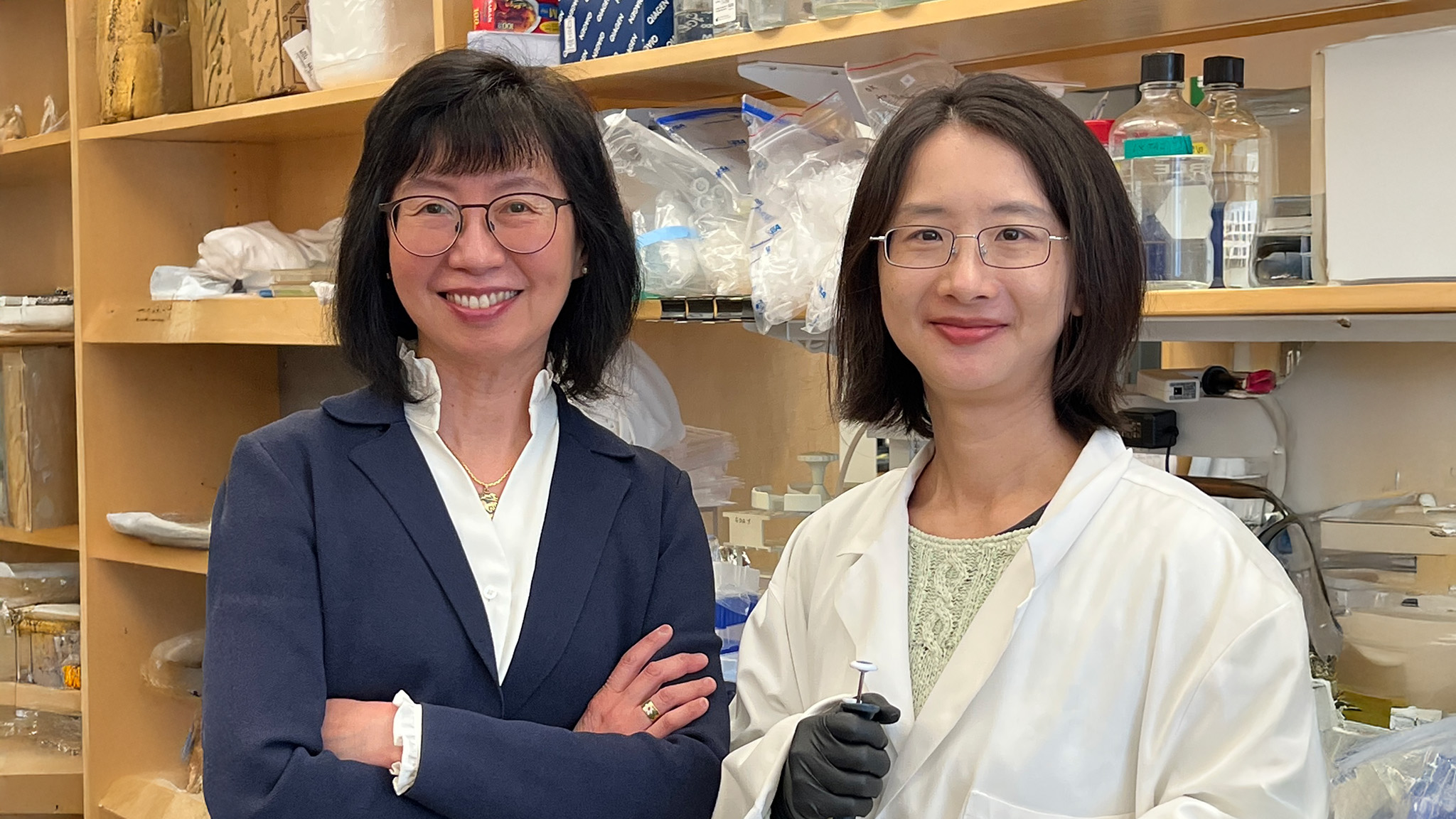Reactivating the FMR1 Gene to Reverse Fragile X Syndrome

Jeannie Lee, MD, PhD
Principal Investigator
Chloe Chen, PhD
FRAXA Postdoctoral Fellow
Massachusetts General Hospital
and Harvard Medical School
Boston, MA
2025-2026 Grant Funding: $100,000
Co-funded with the Pierce Family Fragile X Foundation
Summary
Dr. Jeannie Lee’s groundbreaking project aims to reactivate the silenced FMR1 gene in Fragile X syndrome by using a novel R-loop-based gene editing approach. By inducing the cell’s natural repair mechanisms to remove the abnormal CGG repeat expansion, her team has already achieved near-complete gene reactivation in patient-derived neurons.
Dr. Lee recently won a $1 million Blavatnik Award to fund essential studies in live mice which have been developed to model Fragile X.
Now with FRAXA funding, the team will use 3D brain organoids to test whether this strategy restores brain function in human tissue — a potential curative therapy for Fragile X.
Together these studies are designed to bring this exciting research discovery to the clinic and to the Fragile X community.
The Science
Dr. Jeannie Lee is leading an innovative research project aimed at reversing the underlying genetic defect of Fragile X syndrome (FXS) by reactivating the silenced FMR1 gene. FXS, the most common inherited cause of intellectual disability and autism, results from a CGG repeat expansion in the FMR1 gene that leads to DNA methylation and gene silencing. While past treatments have targeted downstream effects, this project seeks to correct the root cause by reactivating FMR1 expression in human neurons using a novel R-loop-based approach.
The team discovered that inducing site-specific R-loops — three-stranded DNA:RNA hybrid structures — at the CGG repeat triggers the cell’s natural repair systems to excise the expanded repeat, leading to DNA demethylation and restoration of FMR1 activity. This method has shown up to 100% reactivation of FMR1 in post-mitotic neurons derived from Fragile X patient stem cells, an unprecedented result. Early experiments also show promising specificity, with minimal off-target effects.
To advance this work, Dr. Lee’s team will create 3D brain organoids, or “mini-brains,” derived from patient stem cells, which better mimic human brain development. They will use AAV9 viral vectors to deliver the dCas9 and guide RNA needed for R-loop formation, then assess whether this method restores FMR1 and corrects key neuronal deficits. This model allows the researchers to track changes in gene expression, synapse structure, and network activity, providing insight into whether the therapy improves brain function.
This project is a potentially curative approach to FXS, directly addressing the cause rather than managing symptoms. With proof-of-concept data already in hand and additional funding from FRAXA, Postdoctoral Fellow Dr. Chloe Chen and other members Dr. Lee's team will work to generate robust data to support future clinical translation of this gene-reactivation strategy.
Meet the Scientist
Dr. Jeannie Lee is a world-renowned geneticist at Massachusetts General Hospital and Harvard Medical School, known for her pioneering work in gene regulation and epigenetics. With initial funding from FRAXA in 2019, her lab began developing a groundbreaking approach to reactivate the silenced FMR1 gene, the root cause of Fragile X syndrome. Over the years, this research has led to the discovery of site-specific R-loop formation as a strategy for gene reactivation — a method now being further tested in patient-derived brain organoids. Learn more about the origins and evolution of this research.

